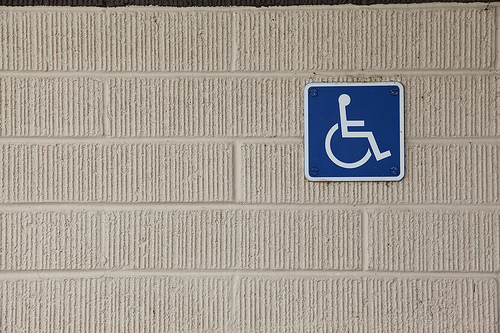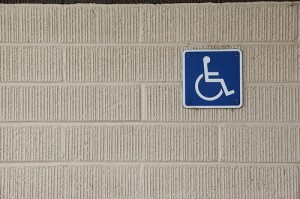I′m a student with a disability. What rights do I have?

Not long ago, children with disabilities were excluded from the same educational advantages given to students without disabilities. Beginning in 1975, a number of federal laws were passed by the U.S. Congress that drastically improved the life of children with disabilities.
The Education of All Handicapped Children Act of 1975 and the Americans with Disabilities Act of 1990 (ADA) support the basic principle that all children are entitled to a “free, appropriate public education.” Schools must take a child′s disability into consideration in determining his or her needs and how to meet them.
At an end-of-the-school-year ceremony, 11-year-old J.R. was given three awards: the Pigsty Award, a Procrastinator′s Award, and a World′s Worst Athlete Award. J.R. is dyslexic (he has a reading disorder) and dysgraphic (he has a writing disorder). He also lacks motor skills. He has received special education since kindergarten.
Were the awards in bad taste, or in the spirit of fun? Is the school responsible for promoting equality among students? Do “joke” awards like these discriminate?
Here′s what happened: J.R.′s father sued the school district for discrimination, and a settlement was reached. J.R. received public and private apologies, and the school district had to pay for four years of his college education and his family′s attorney′s fees.

Photo by D. Sharon Pruitt
If you′re disabled, you′re entitled to a complete evaluation to determine your “unique educational needs.” Your school is required to develop an Individualized Educational Plan (IEP) designed to allow you to benefit from your education.Your parents may participate in developing this plan. It′s reviewed regularly to make sure that it reflects your performance, and it may be adjusted accordingly.
Depending on your IEP, you might be mainstreamed into regular classes with the rest of your grade. If you′re unable to handle mainstream classes, you may be transferred to a special school or taught at home. The school is required to provide whatever special services are needed to assist with your education, including psychological testing, speech therapy, and medical services.
For students with disabilities, discipline at school is handled on a case-by-case basis.Your particular disability must be taken into consideration. You may not be suspended for more than ten days or expelled if your behavior is a result of the disability.* The law requires that you be reevaluated to determine if a more restrictive school setting is necessary to meet your educational needs. In other words, you may be removed from the mainstream program and transferred to a special school.
Your attitude and willingness to cooperate with the services offered by your school will be a major factor in your academic and personal success. As disabled actor Christopher Reeve said, “Either you vegetate and look out the window, or activate and try to effect change.”
*In July, 2011, a federal court in California revived a lawsuit filed in 2005. The issue regards the authority of a teacher to discipline a 7-year-old autistic child by placing him in a “safe room.” The room was a small, dark space where D.P. was sent more than once. The lawsuit alleged that one time he urinated and defecated on himself when isolated in the dark room. Although seclusion techniques such as isolation rooms may be lawful under state law, they must be humane and used judiciously. (see Payne v. Peninsula School District, 9th Circuit Court of Appeals, July 29, 2011).



I don’t approve of this comment. “The law requires that you be reevaluated to determine if a more restrictive school setting is necessary to meet your educational needs. In other words, you may be removed from the mainstream program and transferred to a special school.”
The law requires that the special needs of the student be met, in the school or where else the parent’s might agree – perhaps a private school – the above makes it sound like if you ask for help you risk being forced into a more restrictive environment. This happens – of course – but is completely illegal no matter how the school and localities defend it.
Go here for more information.
http://www.wrightslaw.com/
Dear Ms. Lawrence: Thank you for your comment. We agree with your point and have changed the phrasing used in this answer.
Referring to the sidebar report above on left ~ glad the family sought and recv’d justice but I think their preference would have been like mine…to keep your child from having that kind of experience to begin with! I have a child with dyslexia, dysgraphia and global dyspraxia as well. I have homeschooled for 7 years to prevent trauma but recently requested testing and recommendations from the school. So far they have refused on the basis that unless I enroll him full-time and ‘he has trouble’ (read: FAIL) then they don’t know what to test for and that is their procedure in order to ‘not discriminate’. Hello?
Dear C.: You might check with the school district office to verify that enrollment is necessary before services can be considered. The federal laws on this subject are clear and a district’s funding depends in part on compliance. Good luck.
[This is information only – not legal advice].